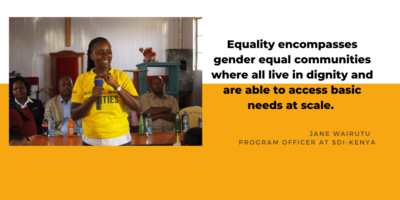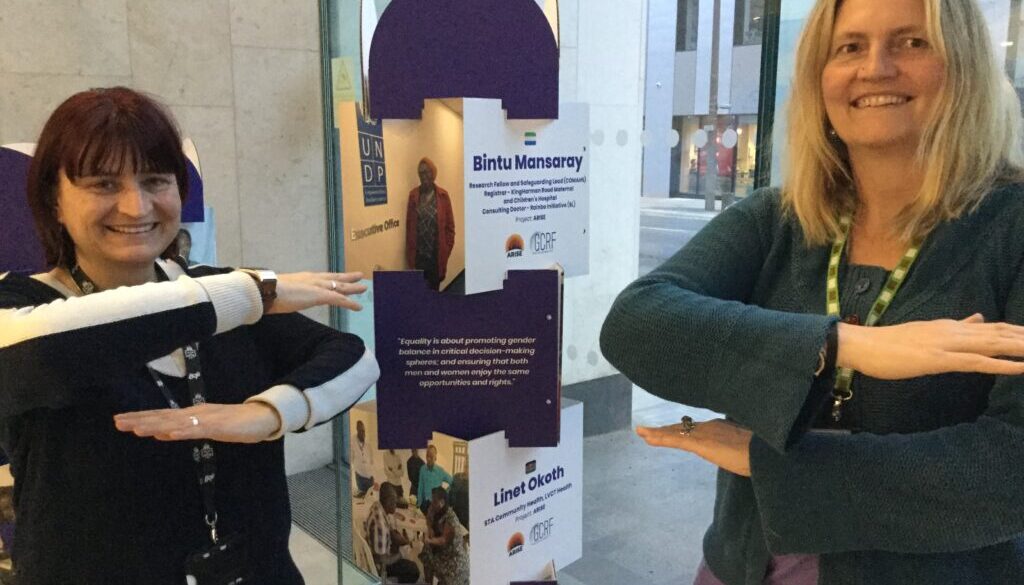Each for equal in a changing world: looking backwards and forwards in 2020
By Rachel Tolhurst and Sally Theobald
2020 is a critical year for advancing gender equality. It is 25 years since the adoption of the Beijing Platform for Action. This coincides with the 20th anniversary of UN Security Council resolution 1325 on women, peace, and security and the 10th anniversary of UN Women.
The theme for International Women’s Day is “An equal world is an enabled world”. Looking around us, we can see huge challenges to creating an equal world. In many spaces rights are being eroded. There are challenges to the citizenship of minorities and there is hostility towards migrants. There have been setbacks in realising sexual and reproductive and LGBTQ+ rights. The marginalisation and impoverishment of people living with disabilities is increasing.
These challenges are magnified by the climate emergency and continued fragility and conflict in many places. The scale of the challenges often feels overwhelming. But we hope to tackle them through solidarity and inclusive partnerships for change. We need to balance unity with sensitivity to all our differences.
A message of hope
We have been working in global health for the last 20 years. It has been a time of solidarity and transformation. We have worked to increase the recognition of the importance of gender in shaping inequities in health and disease experience. Our research has spanned many health issues, such as HIV and AIDS, TB and lung diseases, Neglected Tropical Diseases, maternal and reproductive health, malaria, water and sanitation and air pollution.
Activism on HIV brought visibility to gender inequities and promoted the inclusion of affected women and a focus on their rights. This was the result of advocacy by strong networks of women’s organisations. It included strategic partnerships between the grassroots of the global south and researchers, politicians and others. The scale and severity of violence against women and girls is getting greater attention. Legislatures have put in place new laws against sexual and gender-based violence.
We have learned from feminists in the north and south including disability activists and Black American theorists. To quote Audre Lorde:
There is no such thing as a single-issue struggle because we do not live single issue lives.
As northern feminists it has become increasingly clear that we must ‘check our privilege’. We are actively working to create spaces to amplify the voices and activism of those who are marginalised by patriarchy and structural violence.
The women of ARISE
We have learned from so many inspiring women through our research. ARISE is an exciting space for this. For International Women’s Day we asked all our female colleagues on ARISE for their reflections on the theme of “Each for equal”.
We would like to leave you with some of their thoughts:
- “An equal world is an enabled world. If we could only give women equal opportunities as men, what a difference in the world that would make” Nelly Muturi, LVCT Health
- “By conducting research, I will amplify the voices of women and girls living in informal settlements. Until every girl is as safe as our boys, none of us are safe.” Bintu Mansaray from College of Medicine and Allied Health Sciences in Sierra Leone
- “I will work towards gender equality by breaking structural barriers that enforce and perpetuate patriarchal gender norms and behaviour to provide equal access to rights and opportunities for all.” Samiha Ali from James P Grant School of Public Health in Bangladesh




International Women’s Day: Moving on from the celebration - Arise
10/03/2020 @ 10:34
[…] we move on from celebrating International Women’s Day, I pay attention to how far the fight of female empowerment has come. We may not be where we want […]